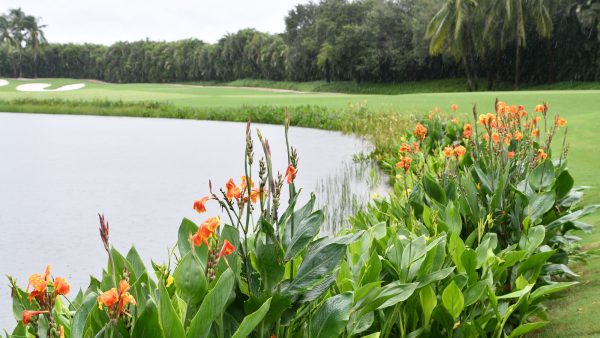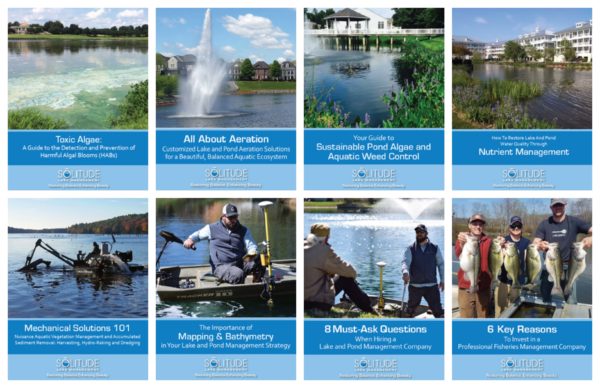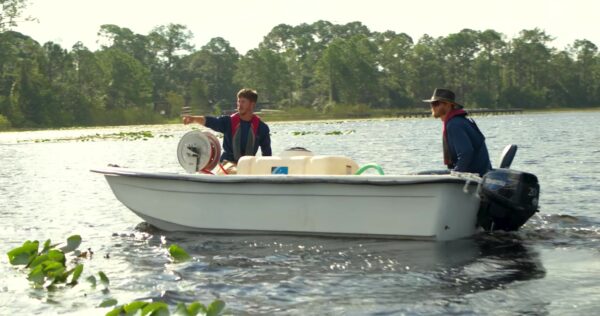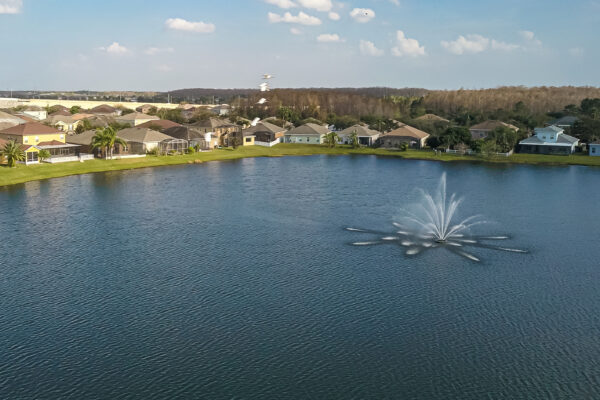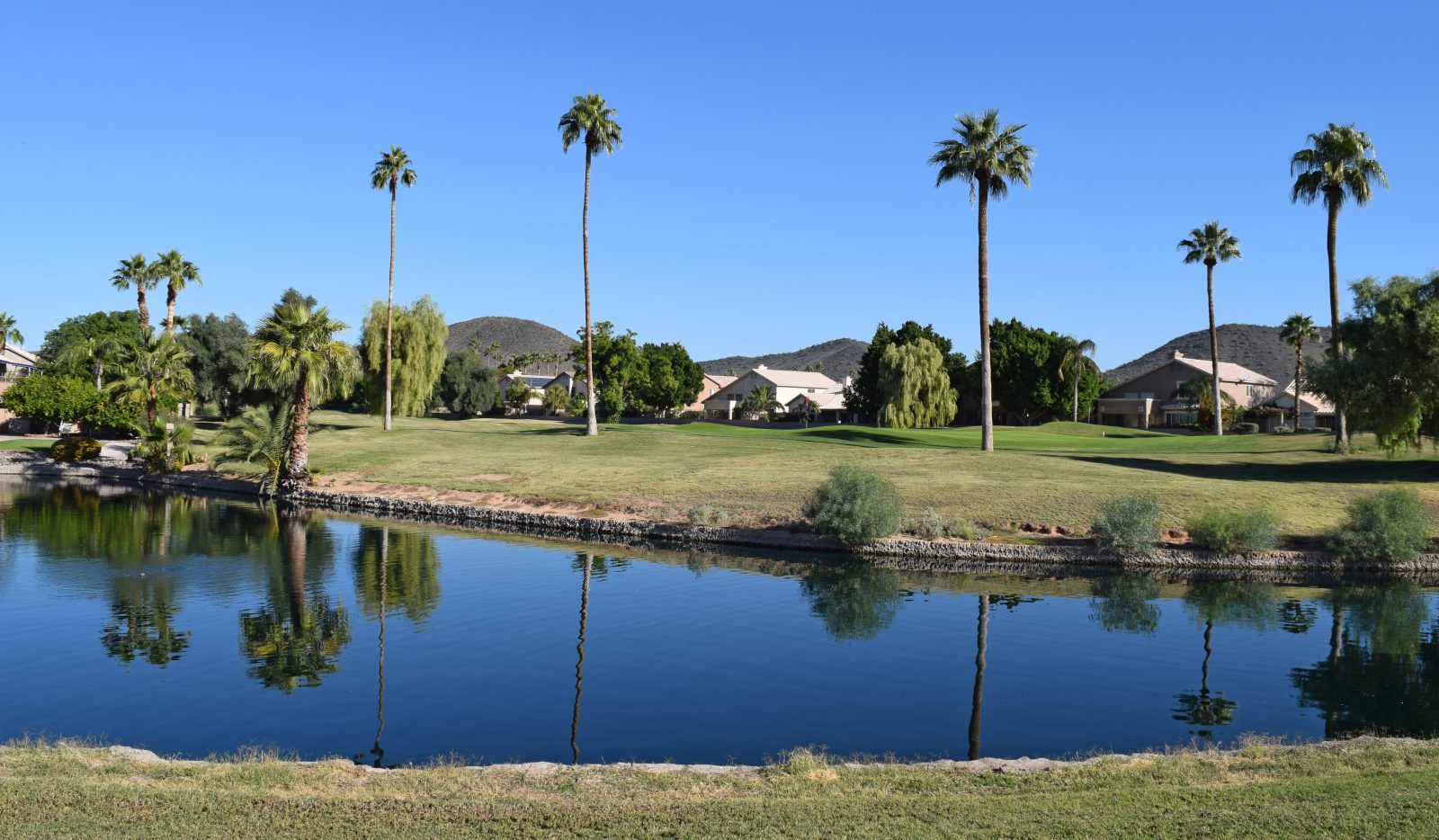
Turtles Impact on Lakes and Ponds
Turtles are one of the oldest still living groups of animals on the planet. The order Chelonii (includes all species of turtles both extant [living] and extinct) dates back to the Triassic period and the time of dinosaurs about 220 million years ago! Over that time period, they’ve adapted to living in many different environments and can be completely terrestrial, semi-terrestrial, and aquatic (both marine and freshwater).
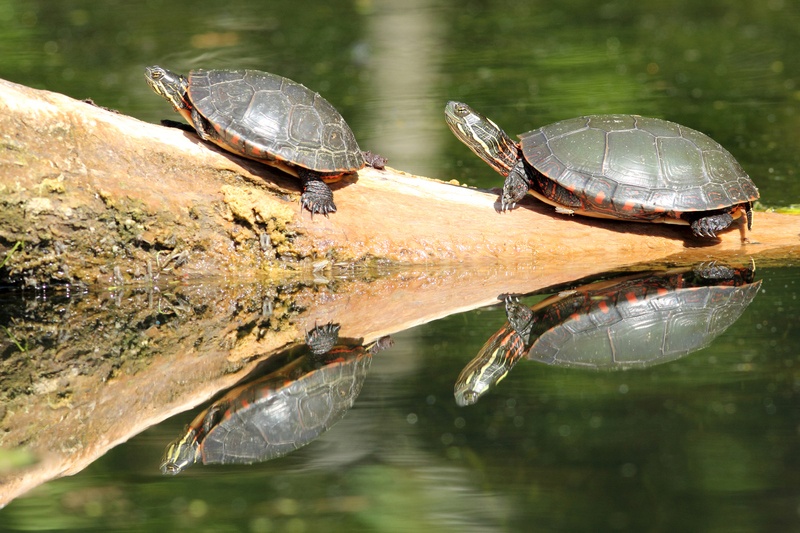
The majority of lakes and ponds have suitable habitat for turtles. So, if you have water on your property, you most likely have turtles and you may be wondering what effect they have on the ecosystem. To determine that, we need to look at what type of turtle you may encounter. The two most common types are sliders (painted and red-eared) and snappers (alligator and common).
Painted sliders are the most widespread native turtle in North America while red-eared sliders are common in the pet trade. Redeared sliders are listed as one of the world’s 100 most invasive species by the International Union for the Conservation of Nature and have been introduced into the wild where they out-compete the native painted populations.
Their diet includes small aquatic insects and aquatic plants and this is where the question of “Are they hurting my pond?” comes into play. Larval and small fish eat the same small insects that the turtles do. There is no evidence to support that an overabundance of slider turtles can limit an insect population to the point that it starts to affect fish. Turtle populations tend to be self-regulating, meaning that as food and other resources become more available, the population numbers grow, and as resources become less available the population numbers drop. This means the population has a hard time becoming overpopulated to the point of impacting other species. Slider turtles also eat plants and decaying matter in the pond. Again, there is no evidence supporting any negative effects on plant populations as a result of turtles.
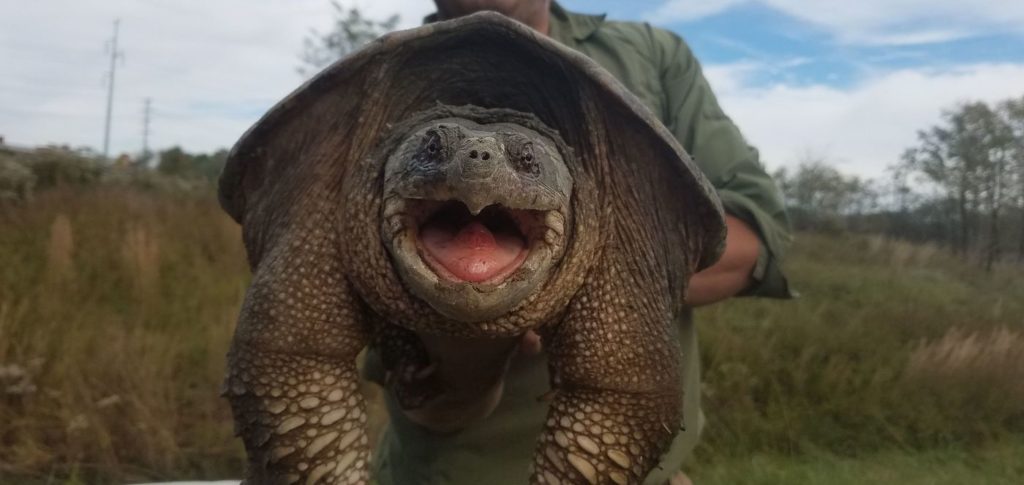
The answer to the question is a fairly straightforward “No” when talking about slider turtles but becomes a little grey when questioning snapping turtles. Like slider turtles, snappers are omnivores. They lie-in-wait and ambush live prey with a fast lunge of their neck and snap of their jaws. Snappers are known to eat fish but it’s not uncommon for them to feed on ducklings, birds, mice, and just about any other source of meat that may enter their habitat. Again, the thought is that snappers eat live fish so they might have an impact on fish populations. Like the case with sliders, there is no scientific evidence to support this and in a natural setting, snappers have no negative effect on fish or waterfowl numbers.
The grey area comes into play when looking at recreational activities around a lake or pond. Snappers can grow quite large (20-40 pounds) and have a large and powerful jaw and sharp claws on their feet. They are aggressive during egg-laying (peaks in June-July) and are known to bite if provoked on land. Trapping can be done to remove snappers, but should always be conducted by a trained professional with the proper authority and knowledge to do so. Handling snapping turtles should be avoided. They may not be hurting your pond but they may end up hurting you!
SOLitude Lake Management is a nationwide environmental firm committed to providing sustainable solutions that improve water quality, enhance beauty, preserve natural resources and reduce our environmental footprint. SOLitude’s team of aquatic resource management professionals specializes in the development and execution of customized lake, stormwater pond, wetland and fisheries management programs that include water quality testing and restoration, nutrient remediation, algae and aquatic weed control, installation and maintenance of fountains and aeration systems, bathymetry, shoreline erosion restoration, mechanical harvesting and hydro-raking, lake vegetation studies, biological assessments, habitat evaluations, and invasive species management. Services and educational resources are available to clients nationwide, including homeowners associations, multi-family and apartment communities, golf courses, commercial developments, ranches, private landowners, reservoirs, recreational and public lakes, municipalities, drinking water authorities, parks, and state and federal agencies. SOLitude Lake Management is a proud member of the Rentokil Steritech family of companies in North America.

